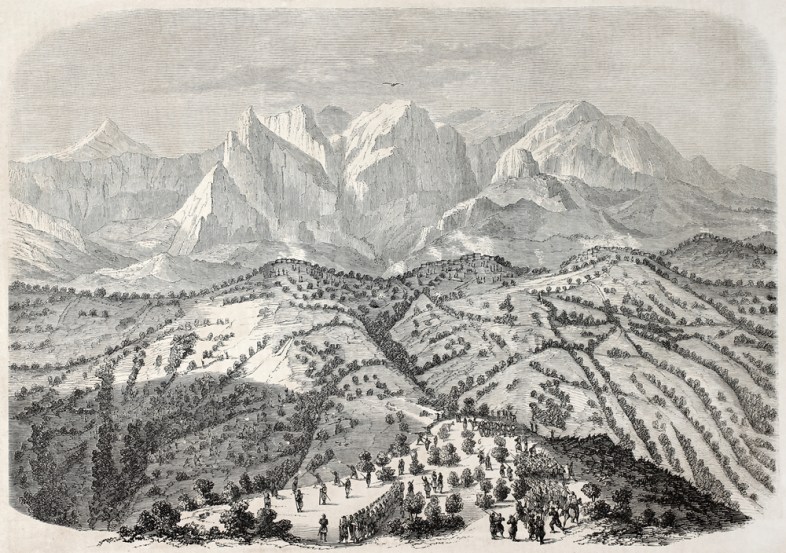
12 Books That Will Change The Way You Think About Colonization And Immigration
If we want to truly understand what went on, we cannot simply accept what we have been told. By expanding our knowledge of these issues, we begin to get an understanding of what really happened throughout the world’s colonial and immigrant histories.

It’s pretty well known that when Europe was expanding, exploring and colonizing different parts of the world, some pretty remarkable events occurred. It’s also been fairly well established that immigrants coming to America had a rough time, to say the least. We learn about these topics on a superficial level in grade school, enough to get an overview of the facts and major events in society’s historical past. Unbeknownst to some however, is the truth behind these facets of history–truth that is so often left out of mainstream accounts and textbooks; truth that can only be seen from the perspective of others.
Colonization: it’s not a new story, but it’s pretty classic. European nations expanding, exploring and claiming new territories all over the globe; from the early 1500s all the way through the twentieth century. These expeditions have often been revered as impressive nautical voyages and feats of navigational technology; a testament to the ability and intellect of European explorers. However, as so often happens, there is more to the story. Genocide, destruction, and loss of native cultures– for starters.
In an effort to expand my own knowledge of Europe’s colonial history, I have read and researched several books. True to form, when I read a great book, I want to share it! In the spirit of sharing knowledge and encouraging enlightenment, I have chosen a few which I would recommend to anyone who may be looking to learn a little more about the complexities of colonization throughout history.
1. King Leopold’s Ghost by Adam Hochschild
I would absolutely recommend this novel to anyone interested in the colonization of the African Congo. I first read it a few years ago, and it challenged everything I thought I knew about colonization and imperialism. Although the brutality of these true events make this novel almost hard to read at times, it’s an enlightening glimpse into what really went on in the Congo. It also shows how the Belgian King convinced his supporters that his work in Africa was “noble”–an insight into government corruption and media influence. This is an excellently written novel that will keep readers fascinated from beginning to end.
2. Guns, Germs and Steel: The Fates of Human Societies by Jared Diamond
This award-winning nonfiction book is more of an overview of human development and the construction (and destruction) of societies throughout human history. This novel does a great job of highlighting various aspects of European colonization and expansion. Throughout this informative text, Diamond touches on the issue of European colonization of lands such as North America, Latin America, South America, Africa and Australia. He mentions why Europeans had the upper hand over native peoples, and does a wonderful job of proving his points and informing readers every step of the way. Encompassing a range of fascinating topics and arguments, this book is an absolute must-read.
3. Empires of the Atlantic World by J.H. Elliott
An intriguing book, this novel compares Britain’s colonization of North America to Spain’s conquest of South American regions. Elliott shows the similarities of the destructive forces used by both European nations in their quest for control of their colonies. It shows readers the ruins these nations left in their wake, and the toll it took on native peoples of both continents. Unique in its comparative analysis, this book is worth looking into.
4. Heart of Darkness by Joseph Conrad
A classic and insightful look into colonial brutality in the Congo. This book contains portions of Conrad’s manuscripts from his own trips to the Congo, as well as maps and other documented information. Similarly to Hochschild’s novel, this book also informs readers of the atrocities committed during this colonial era and will have them rethinking how the African continent has been used and mistreated throughout history.
5. The Fatal Shore: The Epic of Australia’s Founding by Robert Hughes
Australia is unique in that it has a different past than most of Britain’s colonies. Rather than exploiting land, resources and people, Britain sent prisoners to Australia for nearly 100 years, beginning in the late 1700s. This novel delves into the details of Britain’s decision to use Australia as a prison colony, and the harrowing journey and punishments inflicted upon those who made the voyage. Factual and well researched, this book also highlights the effect this colonization had on the native Aboriginal people as well as the prisoners themselves.
6. Facing East from Indian Country by Daniel K Richter
Richter tells the story of European colonization of North America from the perspective of Native American tribes. A story most people think they know, this novel shows the non-Eurocentric point of view; an informative look at the other side of the story. Highlighting some of the complexities behind North American colonization, this novel is perfect for anyone interested in learning more than what is taught in a typical text book.
These books are full of valuable perspectives into the history of European colonization of various continents. Providing different points of view, factual evidence and the (unfortunately) often sad and painful truth behind what many of us have been taught to believe.
***
Immigration: another issue in which many of us average folks have a basic understanding. Most of us learned of America’s “melting pot” and the influx of immigrants beginning in the colonial period, continuing to present day. What many of us did not learn however, is of the prejudice and constant struggle to survive (let alone succeed) which many immigrants faced upon arrival–and still face today.
I feel that to truly learn and understand the journey of others, we must see things through their eyes. The following novels can help readers to do just that. They are well written, enlightening stories of immigrant life in America from a range of perspectives and time periods.
7. When Heaven and Earth Changed Places by Le Ly Hayslip
A moving autobiographical account of one Vietnamese woman’s struggle for freedom and acceptance. This novel tells the story of her incredible journey and the unfathomable tragedies she faced, both in Vietnam and America. Dealing with war in her home country, she leaves everything behind for a new life in America, where she faces prejudice, unfair stereotyping, and attempts to make her way. Based on true events, this novel shows readers the very real struggle–and incredible perseverance–of Vietnamese immigrants who made their way to America in an effort to escape the Vietnam War.
8. The Irish Americans: A History by Jay P. Dolan
Thorough, engaging and insightful, this novel offers readers a genuine history of Irish immigration and establishment in the United States. Dolan not only enlightens readers as to when and why many Irish people immigrated, but also shows the struggles they faced to maintain and legitimize their heritage as immigrants in a new nation. From the Irish Potato Famine, to the election of John F Kennedy, Dolan encompasses a range of relative information which will both educate and entertain readers.
9. America is in the Heart by Carlos Bulosan
This autobiographical novel conveys the hardships and viscous racism Bulosan faced as a Filipino immigrant. It will have readers reevaluating how much “freedom” and “opportunity” America has afforded to immigrants. Beginning with his childhood in the Philippines, Bulosan writes of his journey to America and the perils of his transient life; constantly scrapping to survive and endlessly searching for work and opportunity.
10. Salone Italiano: The True Story of an Italian Immigrant Family’s Struggles in Southwestern Colorado by Kay Niemann
Based off of letters and first-hand accounts, this book seamlessly ties together human interest with history. It chronicles an Italian family’s struggle to stay together and succeed in a harsh Colorado mining town around the turn of the century. As easy to read as it is informative, this novel will keep any reader interested. Including romance, hardship, and the family’s struggle to keep tradition and still adapt as immigrants, this novel has a little bit of everything; a true family saga.
11. There’s No José Here by Gabriel Thompson
Following Enrique’s story as an illegal immigrant, Thompson writes an intimate and moving story of what life is like for Mexican immigrants. As a contemporary novel, it highlights an issue many Americans have faced, debated, and will continue to debate: illegal immigration. Often lost in these debates are the undeniably real issues Mexican immigrants grapple with on a daily basis, and the stereotypes they fight to overcome. This novel does a wonderful job of reminding readers what we are all human and vividly shows the dilemmas many Mexican immigrants face.
12. Out of the Shadow: A Russian Jewish Girlhood on the Lower East Side by Rose Cohen
First published in 1918, this autobiography tells the story of a young girl’s fight to make it in New York City at a time when immigration was high and opportunities were scarce. Cohen writes about the poverty in which she and her father lived, and the grueling hours she worked (as a child no less) to get by. Her novel is an informative, moving account of one Russian family’s struggle to make it in America and their remarkable ability to keep their religion and tradition amidst it all.
It’s hard to question what we have been taught to believe. Weren’t the colonists friendly toward the Native Americans? Didn’t Europe spread “God’s good Christian word” in Africa? Didn’t immigrants have all the same opportunities in America as those born here? We have been told it was so, led to believe the lighter side of these complex topics. But if we want to truly understand what went on, we cannot simply accept what we have been told. By expanding our knowledge of these issues, we begin to get an understanding of what really happened throughout the world’s colonial and immigrant histories. And what better start could there be to expanding knowledge and understanding, than to read a good book–or twelve. ![]()











